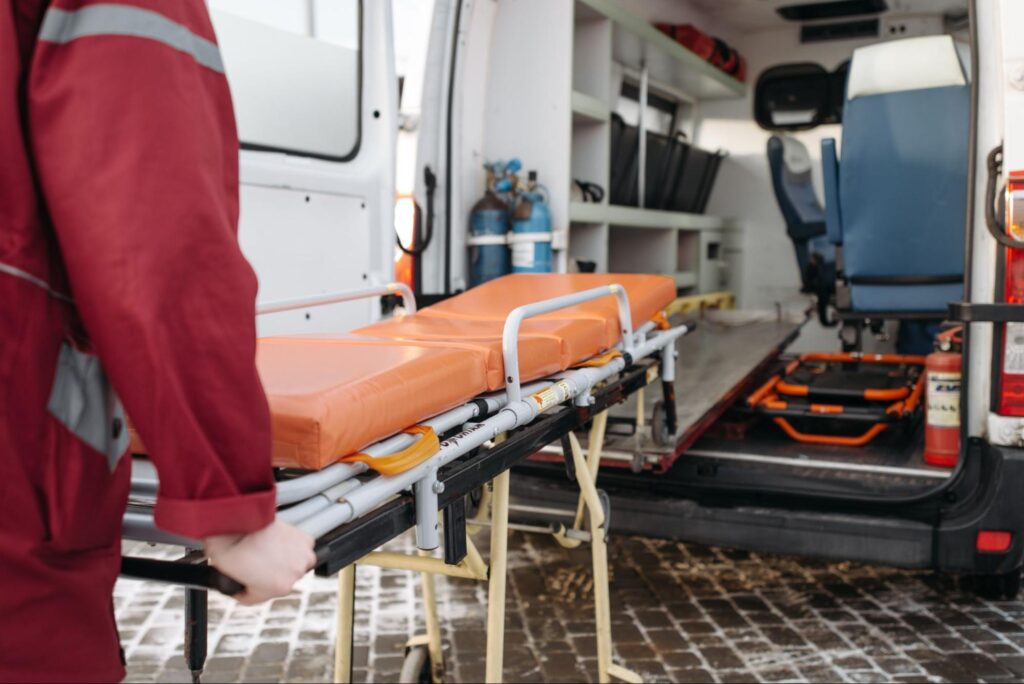By Human-Healthcare.com Medical Team

1. Maximize the Golden Phase of Recovery
The initial three months following a stroke are pivotal for recovery, commonly referred to as the “golden phase.” During this period, intensive rehabilitation through physiotherapy, occupational therapy, speech therapy, and cognitive exercises is crucial.
Dr. Atif Zafar, a leading American board-certified stroke neurologist, shares vital insights to guide the survivors through their recovery. He recommends a well-structured daily regimen: engage in a therapy session in the morning, followed by a rest period in the afternoon to rejuvenate.
Later, engage in additional activities tailored to your recovery needs. For instance, if you’re recovering from right-hand weakness, spend time using your right hand for tasks like typing or handling small objects. These personalized exercises are not just therapeutic but pivotal in regaining strength and mobility.
Action Steps:
- Schedule daily therapies without fail during the first three months.
- Incorporate rest periods into your daily schedule to aid recovery.
- Practice specific exercises multiple times a day tailored to your recovery needs, like typing with the affected hand or gripping exercises. Music therapy (singing along with the vocalist), leveraging reading, wathing-movies (watching a movie and pausing it every 10 minutes; then explaining it to a partner or friend of what you watched/observed), etc
- Engage in passive and active rehabilitation exercises that focus on your specific areas of weakness.
By adhering to this regimen, you can leverage the crucial early months of stroke recovery, enhancing your chances of regaining maximum functionality.
Lets move to the second point:
2. Understand the Causes of Your Stroke
It’s critical to determine what caused your stroke to prevent future incidents. Dr. Atif Zafar emphasizes the importance of comprehensive medical evaluations to identify the specific reasons behind a stroke. Common factors include uncontrolled hypertension, smoking, high cholesterol, and diabetes.
“By undergoing thorough checks such as vascular scans and heart ultrasounds, you can uncover the root causes. Knowing these triggers enables you and your healthcare team to devise targeted strategies for lifestyle changes and medical interventions to reduce the risk of another stroke. Having another stroke after the first one is the last thing anyone would want”.
Unfortunately, many times a comprehensive evaluation is not done which leads to serious implications on our patients.
Action Steps:
- Request detailed screenings from your healthcare provider to identify all potential causes of your stroke.
- Modify your lifestyle based on specific risk factors identified, such as improving diet, quitting smoking, or managing blood pressure.
- Regular follow-up with your doctor to monitor your health status and make adjustments to your treatment plan as needed.
These steps will help you take proactive measures against the recurrence of strokes and aid in long-term health management. Dont hesitate to ask and inquire about the cause of your stroke. “Until and unless you know the cause, how will you prevent a future stroke”, says Dr. Zafar.
Let us review the third important point:
3. Stay Motivated and Engaged in Your Stroke Recovery
The journey to recovery after a stroke is long but can be rewarding, with potential improvement up to 18 months post-event. Dr. Atif Zafar emphasizes that many stroke survivors regain 70-95% of their pre-stroke capabilities. A proactive attitude from both the patient and healthcare team is crucial.
Managing symptoms like spasticity, mood, and pain effectively is key, as these can significantly hinder progress. Dr. Zafar also suggests discussing consideration for an SSRI in eligible patients to enhance fine-motor skill rehabilitation, underscoring the diverse strategies that can support recovery.
Action Steps:
- Stay positive and proactive in your recovery approach, focusing on gradual improvements. Know that most patients can recover 70% or more.
- Address pain and other discomforts promptly with your healthcare provider to maintain motivation. Maintain a diary and share with your care team so that you are finding solutions to your concerns.
- Discuss medication options for pain, spasticity and mood (such as an SSRI) with your doctor to see if they could aid in your recovery.
Engagement and determination can dramatically influence your recovery trajectory, enhancing your ability to regain independence and quality of life.
Stroke is a disabling disease but you can survive it and achieve an excellent recovery in a few months. To achieve that you must follow the above 3 steps. Human-Healthcare.com is a Pakistani startup helping improve care experiences and outcomes in Pakistani elderly. Connect with us if you have any questions or queries.
